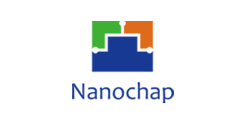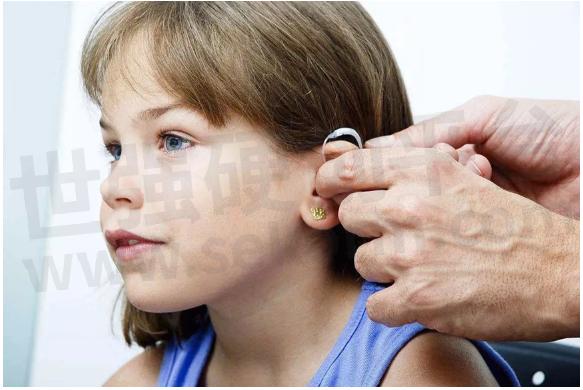Nanochap Introduces Nerve Stimulation Chip Stim Engines Series ENS001 for Cochlear Implant, Charge Balance for Safety

With the continuous development of modern medicine, cochlear implants, as an important hearing restoration device, have successfully helped thousands of hearing-impaired people regain their hearing. However, despite its effectiveness, cochlear implants still present some technical challenges in certain areas. One of these is how to further improve the quality and effectiveness of auditory perception. In recent years, the development of neuroelectric stimulation technology has provided new ways to address this issue. In this field, the introduction of Nanochap's neuroelectric stimulation chip, the Genshin ENS001, has brought new solutions for the upgrade and optimization of cochlear implants. In this paper, Nanochap will discuss the use of an ENS001 Nerve Stimulation Chip in cochlear implants, to further improve the hearing restoration effect, so that hearing-impaired people can enjoy a clearer and more natural hearing experience.

First of all, the Nanochap neurostimulation chip, Yuanjin ENS001, achieves multi-channel charge balance by adopting a current mirror architecture that utilizes a current source and a current absorber to form a push-pull mechanism. This design produces a completely independent and isolated charge-balanced biphasic waveform, which avoids damage to human tissue and corrosion of the electrodes, providing long-term safety. This feature allows deaf patients to use the technology without worrying too much about the risk of side effects and complications, improving the reliability and effectiveness of the treatment.
Another key feature of the Nanochap ENS001 is that the current amplitude is controlled by a "DAC-like" digital topology and is an integer multiple of the unit reference current (μA level), which enables high-precision regulation. This meets the need for individualized treatment of hearing loss patients. Since the degree of hearing loss varies from person to person, the current amplitude needs to be adjusted accurately according to individual conditions. With the optimized design of digital topology, the Nanochap Nerve Stimulation Chip Yuanjin ENS001 can precisely adjust the current amplitude, which improves the individualization of the treatment and the accuracy of the effect.
However, it is also important to recognize the possible hazards of charge imbalance. Firstly, external stimuli cause tissue charge imbalance, which may lead to tissue damage and pain; secondly, electrostatic charge interferes with the body's circulatory, immune, and nervous systems, affecting the normal functioning of the organs, which may lead to abnormal heart rate and premature beats; thirdly, persistent electrostatic charge is particularly detrimental to children, the elderly, pregnant women, and lactating mothers, and may lead to a decrease in blood calcium levels. Finally, excessive charge buildup affects the central nervous system and can also lead to changes in blood pH and physical health, manifesting as dizziness, headaches, irritability, insomnia, loss of appetite, and trance.

Nanochap Nanochap Wonjin Programmable Universal Stimulus Chip ENS001 Benefits and Features
Highly integrated to simplify customer material management.
Fine current control, each step can increase the current by only 33 μA, with control accuracy ±16.5μA.
Up to 250 kHz sine/triangle/square or arbitrary waveform current stimulation.
Multi-channel stimulation function integration on a small footprint.
Charge balance technology, keeping positive and negative half cycle charges close to equilibrium by charge replication technology.
Highly expandable, supports multi-channel parallel connection to realize multi-mode stimulation.
Product Parameters
Operating voltage range: 2.5-5V
Operating Temperature: -40℃ ~ 85℃
Low power consumption mode: sleep, stop, standby
4,8,23-channel wide-range stimulus driver (10V~60V)
Core: ARM Cortex-M0 (32MHz)
- +1 Like
- Add to Favorites
Recommend
- Nanochap Nerve Stimulation Chip Stim Engines ENS001 is Used in Foot Massagers to Customize Waveforms
- Nanochap Nerve Stimulation Chip ENS001 on Varicose Vein Treatment Instrument, Non-Invasive and Highly Effective Treatment
- Nanochap Neurostimulation Chip Stim Engines ENS001 in Electrical Stimulation Fitness Clothing, Integrated Solution Achieves Smaller Volume and Power Consumption
- Nanochap Neurostimulation Chip Stim Engines Series ENS001 Features Higher Precision and Stability in Foot Drop System
- Nanochap ENS001 Chip in Muscle Rehabilitation Instrument with Excellent Functionality and Flexible Stimulation Waveform Editing
- Nanochap Nerve Stimulation Chip Stim Engines ENS001 is Used in Female Physiological Period Analgesic Patch, Customized Waveforms to Meet the Different Needs of Customers
- Nanochap‘s ENS001 Neurostimulation Chip Is Used in Simulation Games to Provide More Realistic Somatosensory Feedback
- Nanochap Neurostimulation Chip Stim Engines ENS001 in Anti-Motion Sickness Bracelet, Highly Integrated to Achieve Lightweight and Miniaturization
This document is provided by Sekorm Platform for VIP exclusive service. The copyright is owned by Sekorm. Without authorization, any medias, websites or individual are not allowed to reprint. When authorizing the reprint, the link of www.sekorm.com must be indicated.





























































































































































































































































































































































































































































































































































































































































































































































































































































































